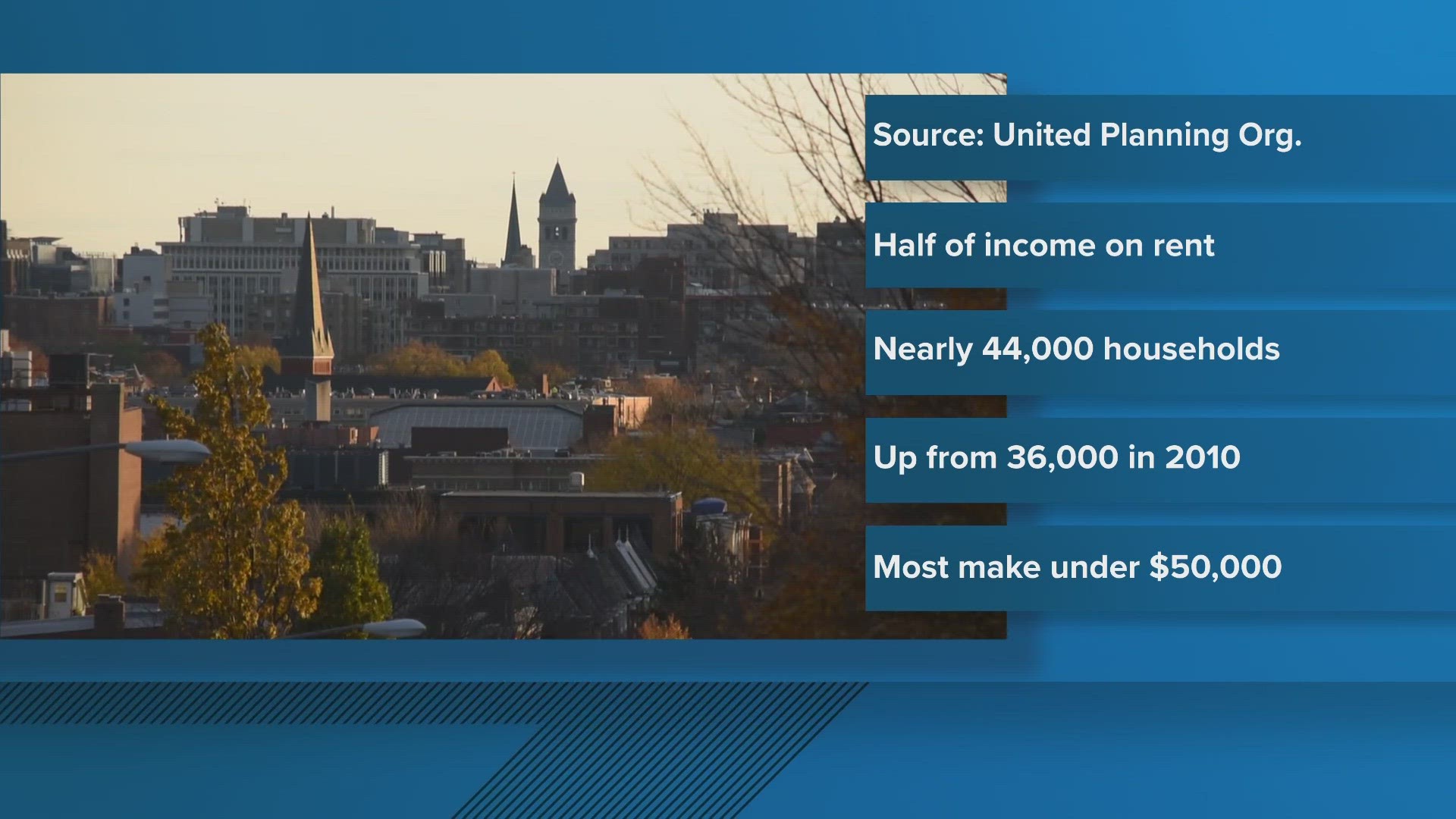WASHINGTON — Renting can be costly, but more and more people in the District are feeling firsthand just how much. According to a new study, over half of renters in D.C. are spending more than half of their income on living expenses.
The United Planning Organization (UPO), a community action agency in D.C., released a report on Tuesday which shows that 44,000 D.C. renter households pay over half their income for housing, which is more than the 36,000 that was doing this in 2010.
Most of those renters have low incomes. As a result, they suffer more severe burdens than in the past when it comes to housing costs. Sixty-five percent of renters with incomes under $50,000 had more burdens in 2022, which is up from 50% in 2014. They are also at high risk of eviction, food insecurity, difficulties in school and adult depression.
According to UPO, the nation's capital is not making progress on affordable housing for those most in need, despite making substantial affordable housing investments.
"This shows that DC’s efforts to expand affordable housing have not been enough to offset rising housing costs in the private market, and that DC’s housing programs are not focused enough on reaching those with the lowest incomes," the report says.
One of the reason, according to UPO, is that D.C. is not using the Housing Production Trust Fund (HPTF) to create enough deeply affordable housing. The affordable housing is supposed to serve households with incomes that earn below 30% of the median family income for the area, but in 2022, only 19% served this group.
Another cause of lack of affordable housing is that the District is not investing enough in rental assistance. UPO says D.C. has created 400 new Local Rent Supplemental Program (LRSP) housing vouchers per year since 2007, which is below the 1,000 recommended by a 2006 task force. "At this rate, it would take 100 years to just meet the current need."
In the study, UPO states that if D.C. expands the LRSP and direct more of the HPTF to families with the greatest need, more struggling residents will be able to afford their rent and care for their families.

